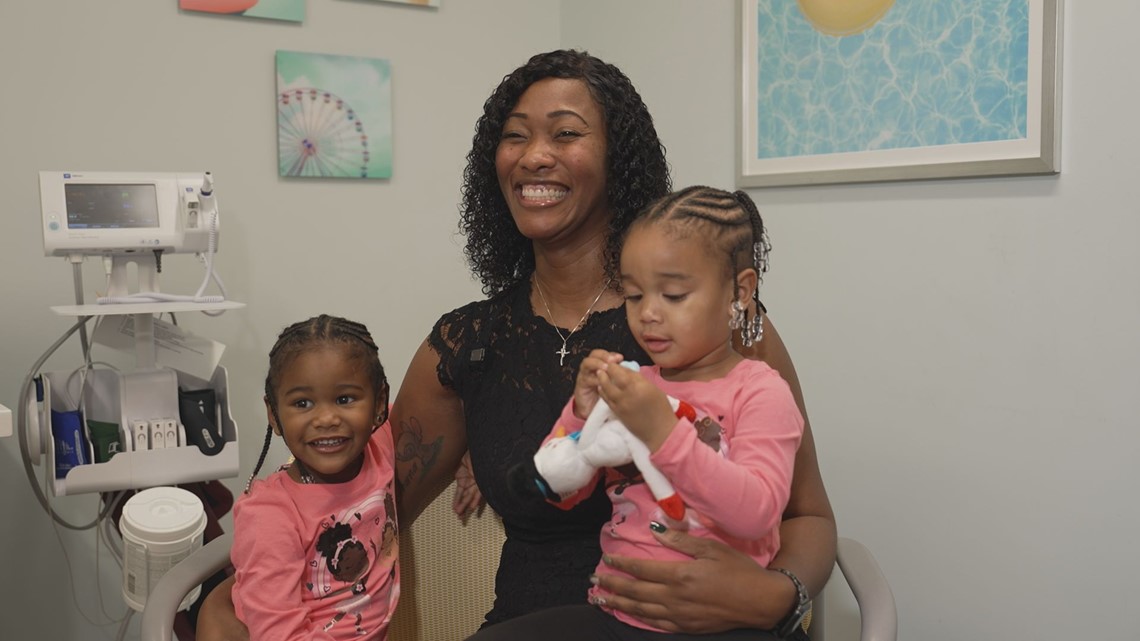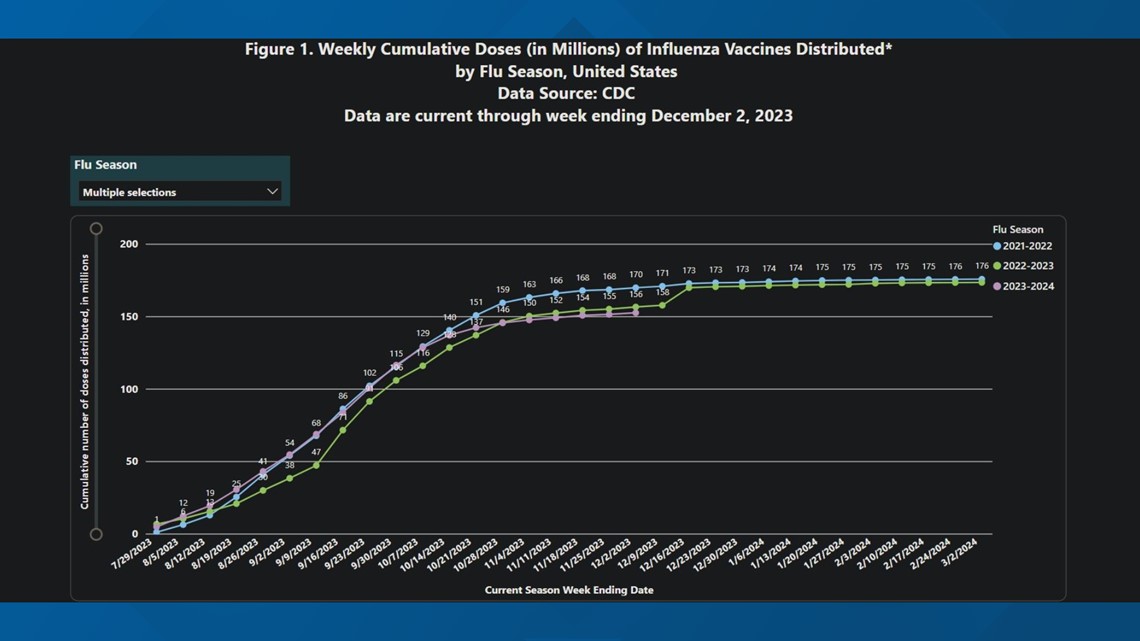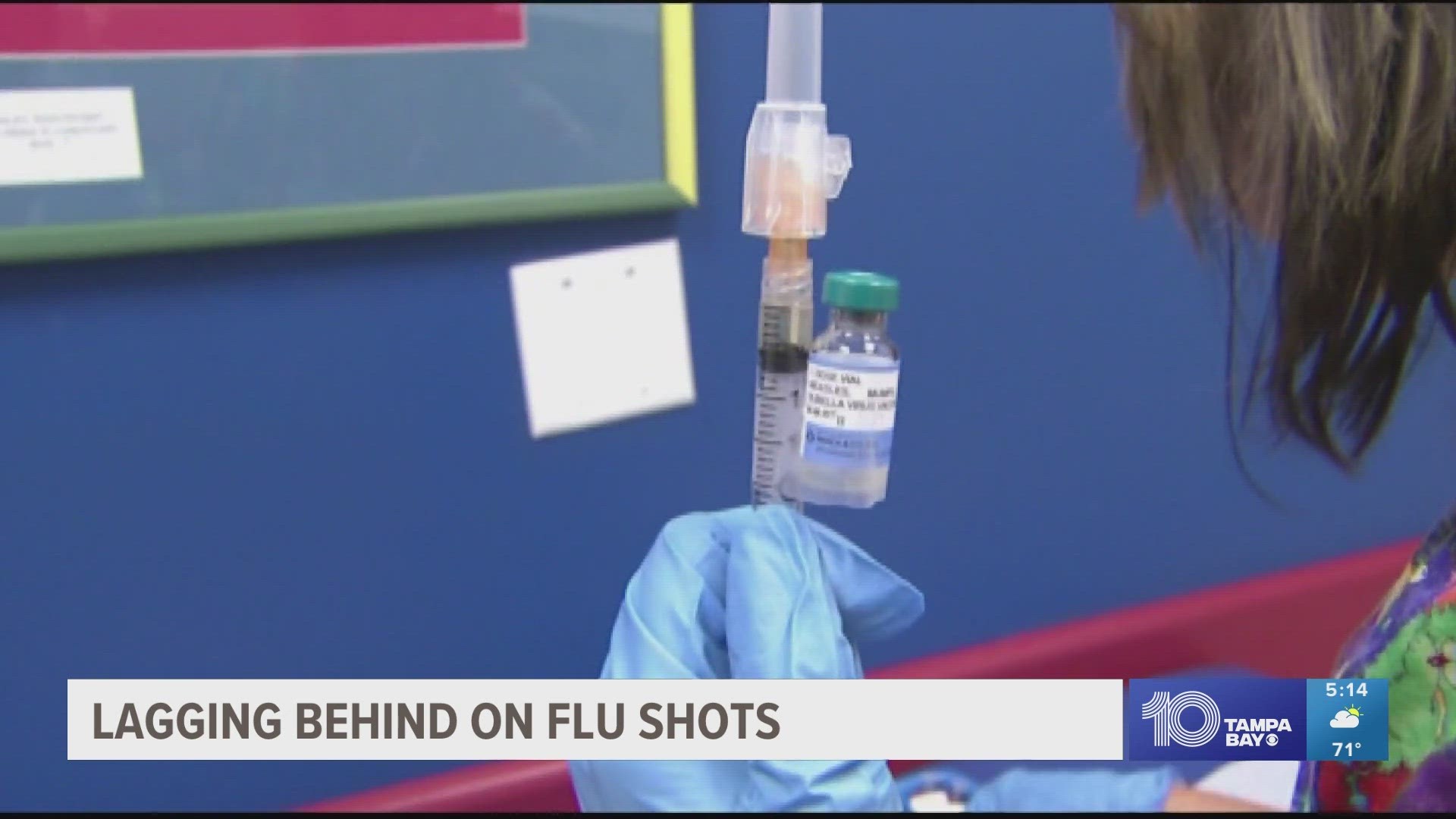TAMPA, Fla. — Monee Vongsalat has her hands full. With two young daughters and a career, the flu is one stress she wants to cross off her list.
“I choose to get the flu shot for my kids every year,” Vongsalat said. “My girls go to daycare and then I work around a lot of different people, in and out of homes. So, I’m just trying to protect them as much as I can.”


But as flu cases are going up, the number of people getting the flu shot is going down.
Centers for Disease Control and Prevention data shows Americans are lagging in getting flu vaccines, compared to previous flu seasons.
“Unfortunately, we’re seeing fewer people come in for flu shots. And I think a lot of it is related to our past experience during COVID, during the pandemic, when there were lots of questions and concerns about vaccines,” said Dr. Nichelle Threadgill, Chief Medical Officer at Evara Health.
According to CDC data, since the end of October, healthcare providers have given fewer vaccines per week than during those same weeks in the previous four seasons.


“Things are likely to get more significant and more severe — especially after we think about the period after Christmas, when everyone's been getting together at home, at church, at parties,” CDC Principal Deputy Director Dr. Nirav D. Shah told 10 Tampa Bay.
That creates particular concern for people of color, who are less likely to get vaccinated and more likely to experience serious health outcomes from the flu.
“People of color often experience a lot of conditions a lot more severely,” she said. “A lot of it is related to baseline health. A lot of it is related to socioeconomics and access to healthcare. A lot of it is related to willingness to report conditions because of distrust in the medical system.”
According to the CDC, it’s safe to get your flu, COVID and RSV shots at the same time. All three infections are on the rise right now. It will take about two weeks before you’re fully protected.

